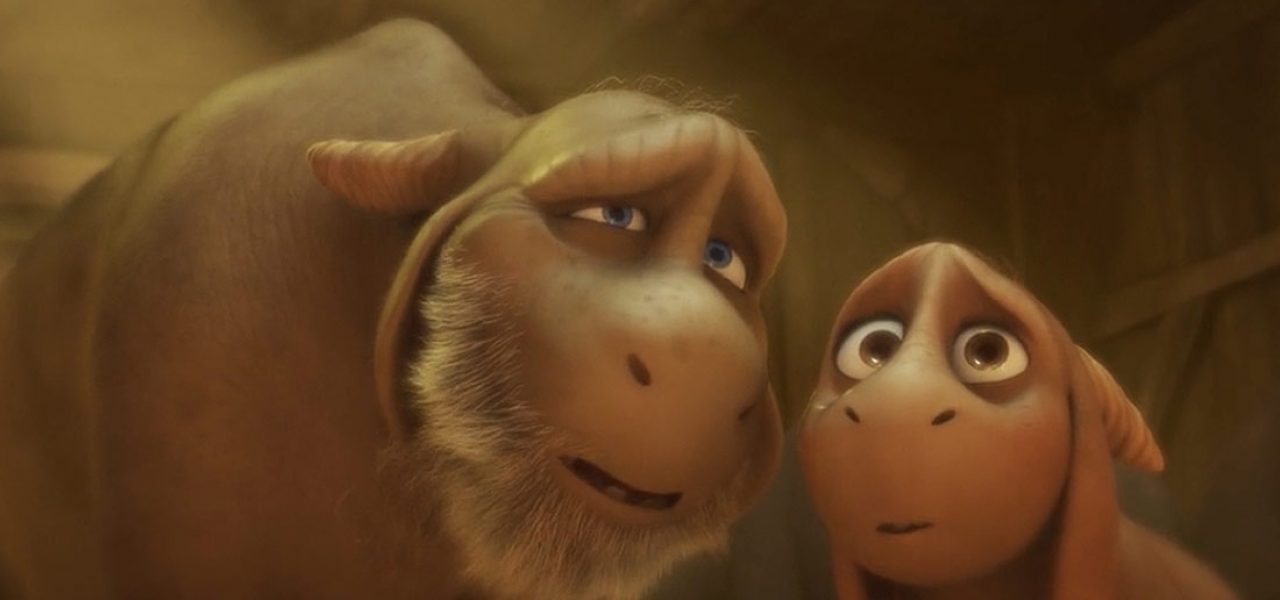
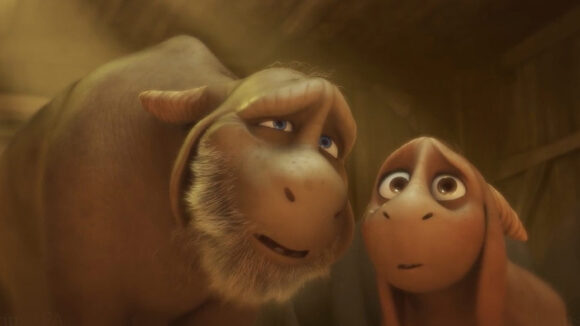
Kirby Atkins On The 20-Year Journey To Bring ‘Mosley’ To The Bigscreen
After 20 years writing, drawing, voicing, tweaking, Kirby Atkins’ passion project, Mosley, opened in New Zealand theaters earlier this month.
Mosley follow a family of four-legged thoriphants (kind of a cross between donkeys and elephants) who live as slaves on a farm run by a sad and bitter farmer named Simon. One night, the thoriphant Mosley and his son, Rue, discover a cave with ancient drawings of what appear to be upright thoriphants. The discovery leads Mosley on a quest to find out what has happened to his ancestors.
Mosley, a New Zealand and China co-production, is an anomaly in the animated feature circuit. There are no annoying songs or blabbering, obnoxious characters. It’s a quiet, poignant and dramatic film (with comic moments) that addresses timeless themes of tolerance, family, and the importance of finding your true self.
Cartoon Brew recently met up with Kirby Atkins in Montreal to talk about the ups and downs of making a low-budget cg animated feature.
Cartoon Brew: I cannot imagine working on a project for a few years let alone twenty! What was the origin of Mosley.
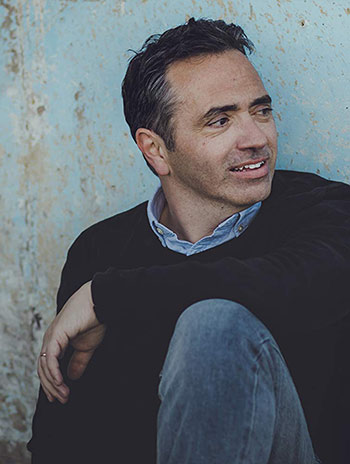
Kirby Atkins: It’s crazy. I was directing the Jimmy Neutron series for Nickelodeon in Dallas and I also had a career writing scripts. I was writing a lot of movies that never got made, but I wasn’t on spec back then, so I got paid for it all. I had a few stories that I liked so I kept some stuff that I was either going to do right or not at all. Mosley was that thing. I started writing Mosley after my daughter was born in 1997. Then I was storyboarding and cutting the film together. I just kept going because I was so into what I was making – even though I was also having bad dreams about films like [Richard Williams’s] The Thief and the Cobbler and all the ways you’re not supposed to make a film. You’re not supposed to put yourself so much into a personal project, but I couldn’t help it.
Mosley started with the end and the whole idea of these Upright characters. Maybe it was echoing Mickey Mouse and Pluto a bit. Why was Pluto the only one on all fours? What tragic thing happened to Pluto that he can’t have a mortgage or wear clothes… yet they’re all in the same world… it must have been some devolution… so that turned into, What would I do if I was upright and had hands? And then the idea of standing up to be the character you always should be.
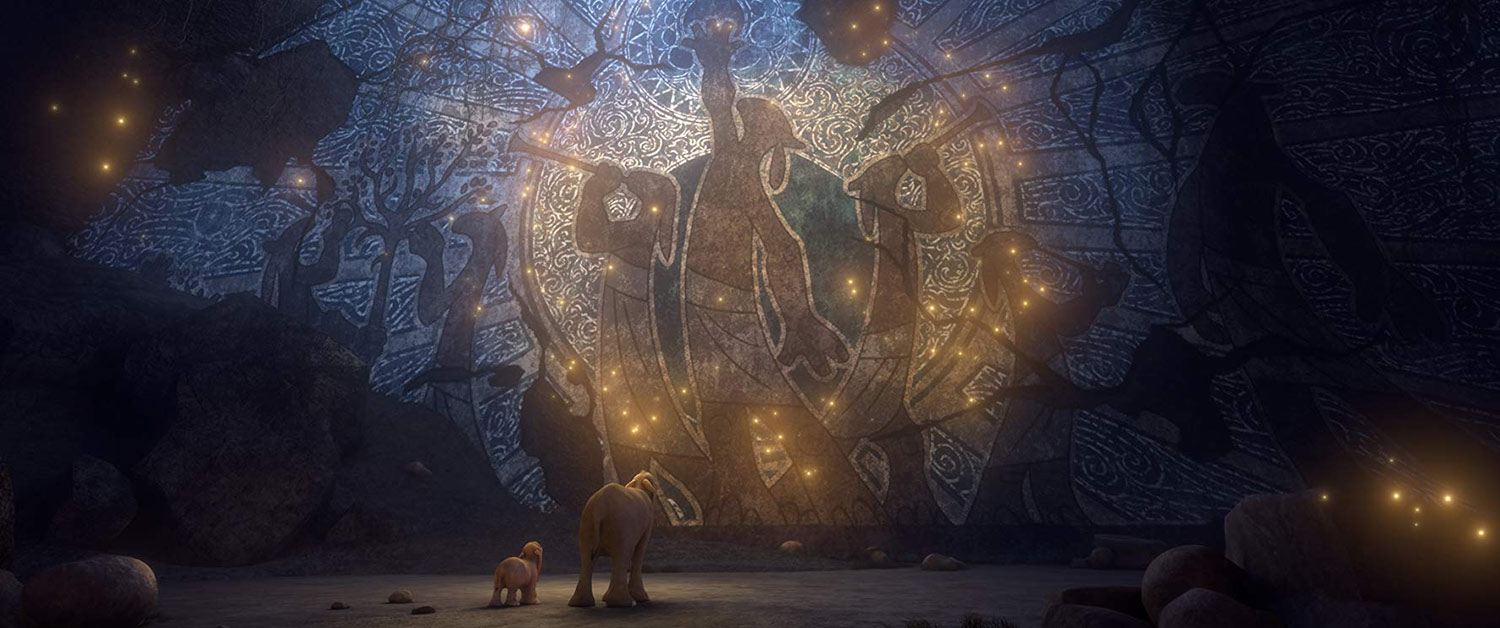
I think this idea of standing up and being true to yourself is a pertinent theme in our day and age, and in fact a timeless and universal idea that anyone can relate to.
That’s the great thing with fairy tales and fables. Anyone can read their own story in them. LeVar Burton was into the project at one point and he talked to me about it. He saw the experience of African Americans. You are kings in one world and less than nothing in another. It’s about reclaiming yourself and knowing where you came from and what you are.
The character of Rue was voiced by your daughter when she was seven. How did that happen?
By the time my daughter was seven, I was ready to record voices. This is where everything changed. She had been in my office drawing characters with me. She knew everything about this world and would play the Rue character all the time. So I thought, let’s just play the story and I’ll record it. And we did and immediately I knew there was juice there.
Fifteen years later (my daughter is 21 now) when we started production in New Zealand, I handed over these original audio performances of my daughter and I. They thought we should re-record it because of the poor quality of the audio, but I thought that’s what makes this, because she would just make lines up. She would make up little asides and things like that. It was lovely and unhindered. She wasn’t acting, she was playing. If we had gotten a child actor in, it wouldn’t have been anything like that. That’s when things really started to come together.
How did you end up working in New Zealand?
Initially, I was working with Pres Romanillos. We were going to make the film in Spain, but Pres became ill and passed away after a couple of years. That grounded everything. After he died I just kept working on it, I don’t even know how many years. I was writing and animating, freelancing whenever I could, and then this opportunity opened up to make a co-production in New Zealand.
They were looking for scripts. I had storyboarded the whole film. I handed it over and they said, ‘Yes, when can we start?’ I said I’m ready to go now and I brought in some friends like Manuel Aparicio (animator, Kung Fu Panda, Moana, Zootopia) as animation director and Kathy Graves Toon (assistant editor, Toy Story 4, Rio) as editor. They felt it was the sort of film that they wanted to work on. It wasn’t comedy. It was more a dramatic family film, like Old Yeller or The Black Stallion.
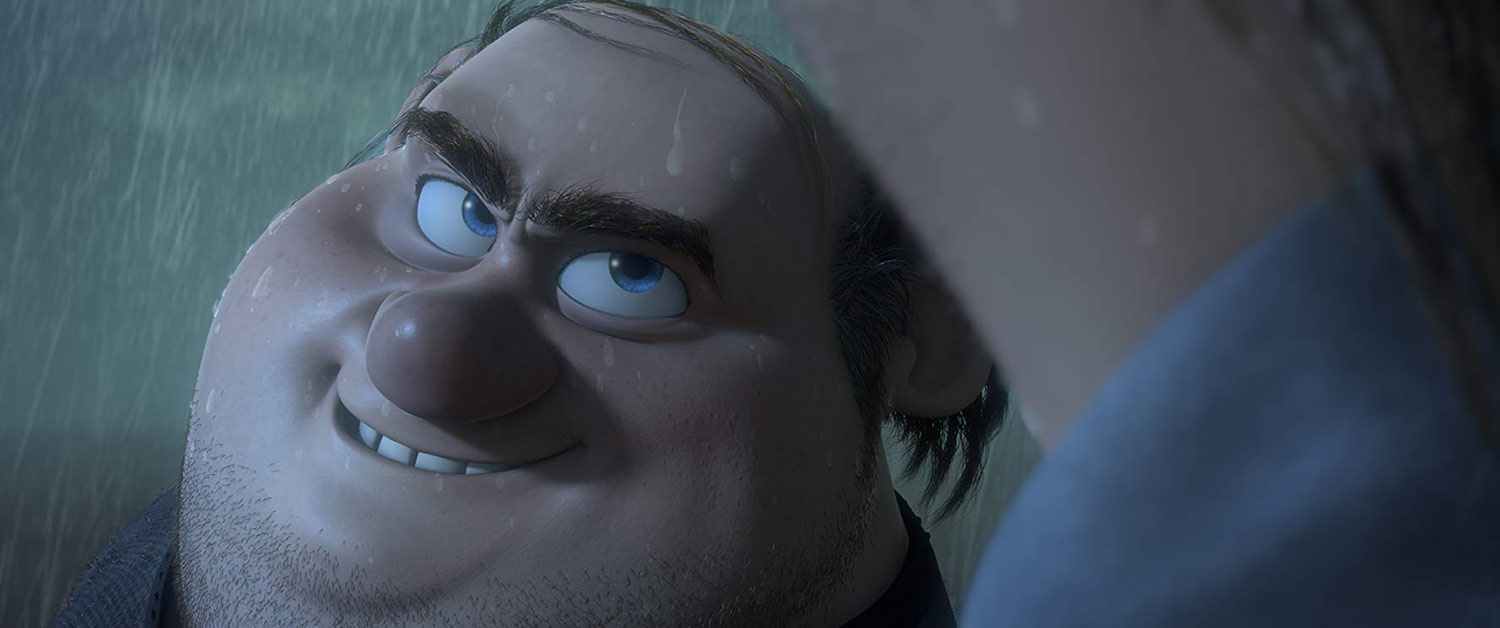
You’ve directed tv episodes and a short film, but this was your first time directing a feature. What were some of most unexpected challenges you faced?
I didn’t really have anyone to talk to or vent about it with. I just didn’t find anyone who had done this before. I don’t know of a lot of directors, so I was just making it up as I went along, and doing what I felt worked. I guess that’s what they would often tell you to do anyway. It was like Crock-pot cooking. I’ve had this thing cooking forever, so when it was time to go I was amazed at how many answers I had, but it was frightful because you’re playing with someone else’s money and if you feel their displeasure you wonder, ‘Am I doing this wrong or do I keep going?’ You’re ravenous for encouragement. You think you do know, but you don’t know, so when you finally show somebody and then you see that it did work… you just think, ‘Thank god.’
How long was the film in production?
It was about three years with Huhu Studios (New Zealand) and about five studios in China. The crew was just fantastic because it was a film they believed in and wanted someone to make.
I did dailies remotely with China via an interpreter. I’d make videos and go through everybody’s shots. Some of the animators were 18 years old, some were 60-70 year olds. Very eclectic. I never knew names, just numbers. But I felt like I got to know them because they were sitting there acting in the camera for me. I got to really love them. They were fantastic artists.
There were things that could have been better, but this was a twenty-million-dollar movie. Lighting could have been better, but you forgive all that stuff if you’re engaged in the story.
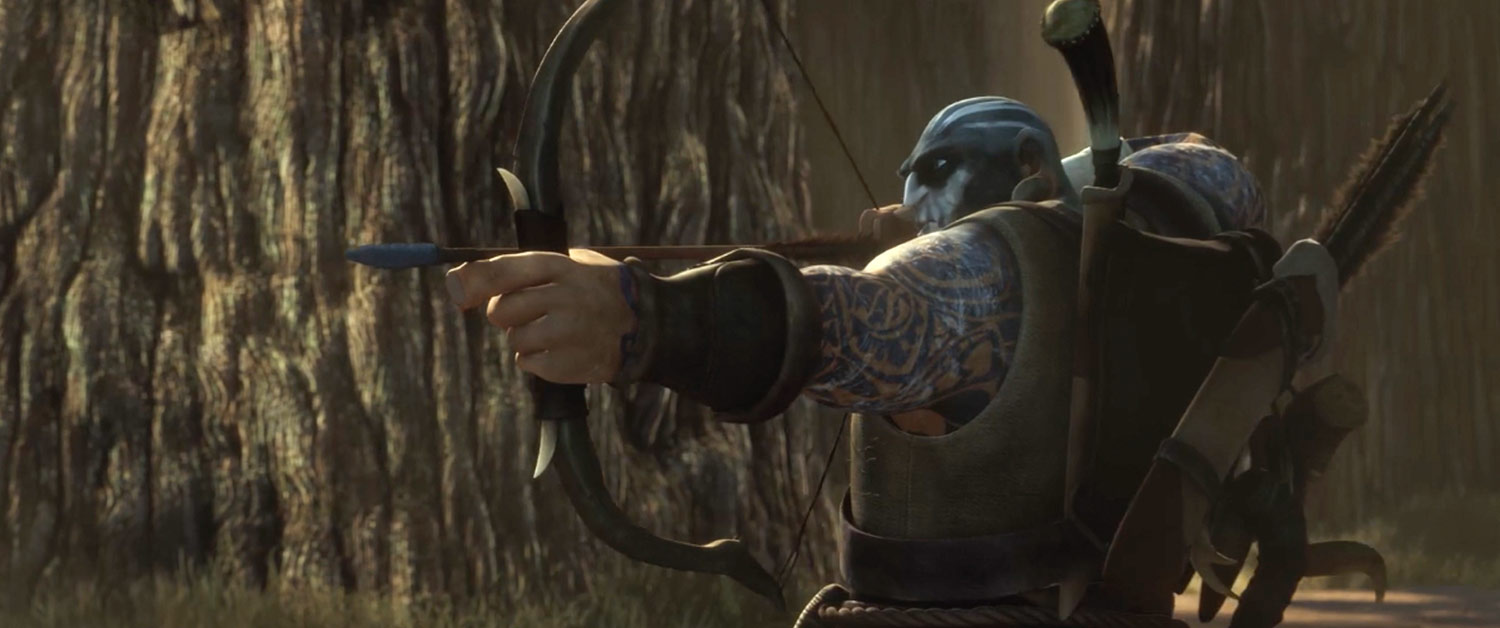
You voiced Mosley, but you landed a trio of interesting New Zealand acting talent: Lucy Lawless (Xena: Warrior Princess), John Rhys-Davies (Raiders of the Lost Ark), and Rhys Darby (Flight of the Concords) — how intimidating was that experience?
They wanted an all-Kiwi cast. I thought of Flight of the Conchords, and also John [Rhys-Davies] had moved there after Lord on the Rings. [John and Rhys] were so opposite: a classically trained actor and a comedian. And it was electric. John and Rhys were just going off of each other… There were moments like when JR and I were doing a scene. He’s fiddling with his coffee or something, and I’m looking at his hands going, ‘That’s the guy who picked up the lost ark with Harrison Ford.” And here I am sitting in a room acting out an emotional scene with this guy.
How do you feel now that this 20-year journey is at an end of sorts?
My biggest fear is who is going to know it exists. We haven’t gone through the PR mill and we missed the Cannes, Annecy, and Ottawa deadlines. Hopefully, if it does well in New Zealand we will move on into Australia.
I am just so thrilled that a bunch of people will be sitting down, watching it. My fear has been that it would get screwed up before it got to an audience or that I just wouldn’t finish it. The biggest compromise I had to make was putting the pop song in the trailer, but I can deal with that. I would say that 85%-90% percent of the film is what I always wanted. I’m not creating any new aesthetics here. I’m not creating some new animation. It’s just the story. Animation has been a means to an end to tell the story.
